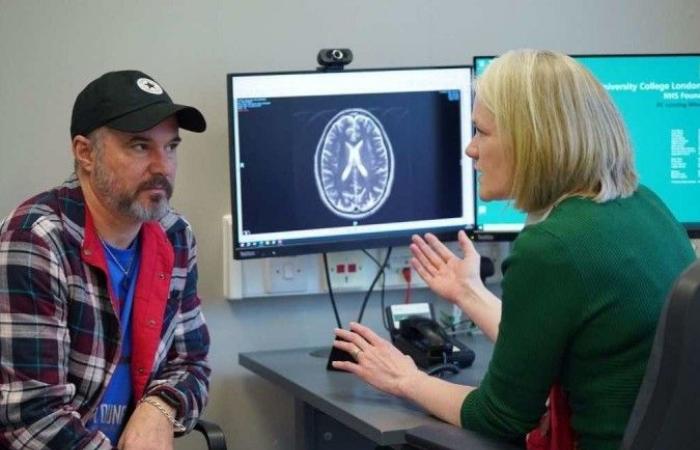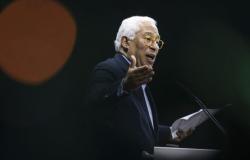Inspired by vaccine technology for Covid-19, one of the most promising therapies for cancer is beginning to be tested in the United Kingdom, in a phase III trial, the last before submission to regulatory agencies. The University College London Hospitals NHS Trust (UCLH) Foundation announced the start of the research, aimed at patients with melanoma, but the treatment has potential for other tumors, such as lung, bladder and kidney.
The study is global and will be conducted in several countries, including Brazil. For now, tests of the vaccine from Moderna and Merck, called mRNA-4157, are being carried out in the United States, Australia and the United Kingdom. The objective is to evaluate whether combination therapy with the monoclonal antibody pembrolizumab is superior to standard treatment, which includes only the latter. The phase II results were presented at the North American Society of Clinical Oncology congress last year and published in January in The Lancet, and were received with enthusiasm by the scientific community.
Melanoma is rare and accounts for 1% of skin cancer cases, with 325,000 people affected annually worldwide. However, it is the main cause of death from this type of tumor. In Brazil, the National Cancer Institute (Inca) estimates 8,400 new diagnoses per year, but the Cancer Tomorrow screening tool from the World Health Organization (WHO) predicts an 80% increase in incidence by 2040.
New phase
mRNA vaccines for cancer treatment are considered the new phase of gene therapy, with potential for cure, depending on the type of tumor. Unlike immunizations that teach the immune system to recognize viruses and bacteria to avoid infection, they use identification proteins produced by cancer cells, called antigens, to provoke a robust defense response in existing tumors. The substances are made with the patient’s own genetic material.
In the phase 2 study of mRNA-4157, patients with resected stage IIIB to IV melanoma who received the combination of the vaccine and pembrolizumab had a nearly 50% reduced risk of cancer recurrence or death over three years compared with those who used only the monoclonal antibody. While the first attacks diseased cells, the second blocks a kind of brake on the immune system, enabling the body’s defense to recognize and fight against the disease.
“The idea behind this immunotherapy is that, by stimulating the body to produce these proteins”, explained, in a press release, oncologist Heather Shaw, who coordinates the new trial in the United Kingdom. “Treatment can prepare the immune system to quickly identify and attack any cancer cells that contain them, with the goal of preventing melanoma from recurring.”
Promising
Expectations for the final clinical trial are high. “This is one of the most exciting developments in modern cancer therapy,” says Lawrence Young, professor of molecular oncology at the University of Warwick in the United Kingdom, who was not involved in the study. “The combination of a personalized cancer vaccine to boost a patient’s tumor-specific immune response, along with the use of an antibody to release the brakes on the immune response, has already shown great promise,” notes Young.
For the oncologist, the hope is that the therapy will show a similar effect on other types of cancer. “Interest in cancer vaccines has been reignited in recent years by a deeper understanding of how the body controls immune responses and the advent of mRNA vaccines, which makes developing a vaccine based on the immune profile of the cancer much simpler. patient’s own tumor. The hope is that the approach can be extended to other cancers such as lung and colon.”
In a statement, one of the first patients to enroll in the UK study was optimistic. Musician Steve Young, 52, was diagnosed with stage II melanoma which was removed. “I feel lucky to be part of this clinical trial. Of course, I didn’t feel so lucky when I was diagnosed with skin cancer; in fact, it was quite a shock, but now that I’ve had treatment, I’m looking forward to ensuring that the disease Don’t come back. This is my best chance.”
Photoexposure
Just like the most common type of skin cancer, melanoma has a risk factor of prolonged exposure to radiation, without the use of protector. “This photoexposure, over the years, can generate new lesions or modify those that already existed on anyone’s skin”, explains Paola Pomerantzeff, member of the Brazilian Society of Dermatology (SBD) and the Brazilian Society of Dermatological Surgery (SBCD) . “The photoprotector must be used daily regardless of the season and whether it is a cloudy, rainy or overcast day; clouds absorb around 10% of ultraviolet radiation, that is, despite the day not being sunny, it has practically the same intensity of ultraviolet radiation than a mega-sunny day”, he warns.
Photoexposure is a risk factor
Just like the most common type of skin cancer, melanoma has a risk factor of prolonged exposure to radiation, without the use of protector. “This photoexposure, over the years, can generate new lesions or modify those that already existed on anyone’s skin”, explains Paola Pomerantzeff, member of the Brazilian Society of Dermatology (SBD) and the Brazilian Society of Dermatological Surgery (SBCD) . “The photoprotector must be used daily regardless of the season and whether it is a cloudy, rainy or overcast day; clouds absorb around 10% of ultraviolet radiation, that is, despite the day not being sunny, it has practically the same intensity of ultraviolet radiation than a mega-sunny day”, he warns.
Did you like the article? Choose how to follow the main news from Correio:
Receive news on WhatsApp
Receive news on Telegram
Give your opinion! Correio has a space in the print edition to publish readers’ opinions via email at [email protected]






